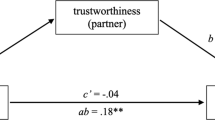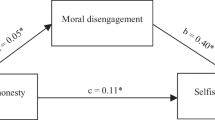Abstract
This study of a collection of self-observed lies told in everyday interactions indicated that all informants lied; that lying was, generally, an easy and spontaneous activity; and that our varied informants told lies in much the same manner and for the same reasons. The analysis of the general features of the interactions in which lies were embedded showed that many lies are the consequence of a preference system that promotes acceptance and hides rejection in the sequential organization of interaction. The lies found in “pre-acceptance” and “pre-rejection” sequences indicate that both parties contrive for acceptance. The negative cases of lies told in rejection of deprecating assessments suggest a broader theoretical template that encompasses the lies told for acceptance as a subset of the interactional preference for social solidarity. In contrast to the view that telling lies undermines social cohesion by interfering with trust, this study indicates that many lies are told to affirm affiliation.
Similar content being viewed by others
References
Atkinson, J. M., & Heritage, J. (eds.), 1984. Structures of Social Action. Cambridge: Cambridge University Press.
Bok, S., 1978. Lying: Moral Choice in Public and Private Life. New York: Random House.
Davidson, J., 1984. “Subsequent Versions of Invitations, Offers, Requests, and Proposals Dealing with Actual Rejection,” pp. 102–128. In Structures of Social Action (eds.) by J. M. Atkinson & J. Heritage. Cambridge: Cambridge University Press.
Drew, P., 1984. “Speakers' Reportings in Invitational Sequences,” pp. 129–151. In Structures of Social Action (eds.) J. M. Atkinson & J. Heritage. Cambridge: Cambridge University Press.
Durkheim, E., 1938. The Rules of Sociological Method. Chicago: University of Chicago Press.
Goffman, E., 1967. Interaction Ritual: Essays in Face-to-Face Behavior. Chicago: Aldine Publishing Company.
Habermas, J., 1979. Communication and the Evolution of Society. Translated by T. McCarthy. Boston: Beacon Press.
Heritage, J., 1984. Garfinkel and Ethnomethodology. Cambridge: Polity.
Pomerantz, A., 1978. “Compliment Responses: Notes on the Co-operation in Multiple Constraints,” pp. 79–112. In Studies in the Organization of Conversation (ed.), J. Schenkein. New York: Academic Press.
Pomerantz, A., 1984. “Agreeing and Disagreeing with Assessments: Some Features of Preferred/Dispreferred Turn Shapes,” pp. 57–101. In Structures of Social Action. J. M. Atkinson & J. Heritage (eds.). Cambridge: Cambridge University Press.
Sacks, H., 1975. “Everyone Has to Lie,” pp. 57–80. In Sociocultural Dimensions of Language Use. J. Sanches and M. Blount (eds.). New York: Academic Press.
Sacks, H., 1987. “On Preferences for Agreement and Continuity in Sequences in Conversation,” pp. 54–69. In Talk and Social Organization. G. Button and J. Lee (eds.). England: Multilingual Matters.
Schegloff, E., 1980. “Preliminaries to Preliminaries: ‘Can I Ask You a Question?’” Sociological Inquiry. 50: 104–152.
Schegloff, E. & Sacks, H., 1973. “Opening Up Closings,” Semiotica. 8: 289–327.
Terasaki, A., 1976. “Pre-announcement Sequences in Conversation.” Social Sciences Working Paper No. 99. Irvine: University of California.
Author information
Authors and Affiliations
Rights and permissions
About this article
Cite this article
Rodriguez, N., Ryave, A. Telling lies in everyday life: Motivational and organizational consequences of sequential preferences. Qual Sociol 13, 195–210 (1990). https://doi.org/10.1007/BF00989593
Issue Date:
DOI: https://doi.org/10.1007/BF00989593




